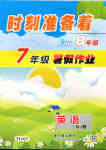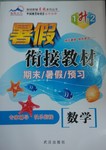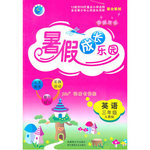题目内容
[2015河南郑州三月模拟] The year of 2014 saw smart people al?ways busy inventing useful things,which have helped to make the world better,smar?ter and a little more fun. Now,let's take a look at some of the inventions. Super Banana Australian biogeneticist (生物遗传学家) James Dale visited Uganda,a poor African country,in the early 2000s,where he found that 15〜30 per cent of children under 5 were at risk of going blind because they did not get enough vitamin A. Dale also learned that people there love bananas. They eat 3 to 11 bananas a day. So he came up with the idea to plant bananas containing added nutri?tion in order to improve Ugandans' health. With the help of Bill Gates' foundation,Dale developed the "super ba?nana". He added a gene to the fruit,making it rich in vi?tamin A.
Coaching Basketball Basketball is popular worldwide,partly because you only need a hoop (篮蟹) and a ball to play the game. But this simple game has experienced a technology makeover this year with the development of a smartsensor basket?ball.
The ball,called the 94Fifty Basketball,has nine sen?sors inside. They can tell you anything from how fast you are going to how accurate your shot angles are.
With a Bluetooth chip inside,the basketball can con?nect to your smartphone and tell you in the voice of a coach to "snap your wrist"? or "go faster", depending on the data.
The Hovercraft (悬浮滑板) Thanks to the Californiabased company Hendo,fly?ing past your friends on a floating board could soon be?come a reality.
The hovercraft has four small engines. These create a special magnetic field which produces enough force to lift the board off the ground.
At the moment,the hoverboard can only float an inch off the ground for 15 minutes and must fly over a metal material. It's expensive too,at $ 10,000 (61,810yuan) , but the company hopes that one day the technology could be used.
Wireless Electricity Most of us could not bear to live without wireless In?ternet. We use it every day for everything from our phones to our cars. But one company wants to go a step further,by combining wireless technology with electrici?ty.
That's right,no more tangled (缠绕的) wires and no more having to sit and hold your cellphone near a power socket (插座) in the corner of the room. WiTricity,a US company,has invented technology that can power objects up to 2. 4 metres away. It uses a special plugin coil (线圈) that creates a magnetic field!
15. Which of the following statements would James Dale agree with?
A. Children in Uganda should eat fewer bananas.
B. Vitamin A is largely found in fruits like bananas.
C. Super bananas are definitely a safe biological prod?uct.
D. People's eating habits can be used to develop new food.
16. What is the biggest advantage of the 94Fifty Basket?ball?
A. The sensors hidden inside can help players run faster in a game.
B. It can help players to improve their shooting and ball handling skills.
C. It allows players to connect to their smartphones while playing basketball.
D. The Bluetooth chip inside allows its users to listen to music while playing basketball.
17. What can we learn about the hovercraft from the text?
A. It enables its users to float off the ground freely.
B. It can work on many different kinds of surfaces.
C. It still needs to improve its power and efficiency.
D. It is an affordable means of transport for a family.
18. What do the hovercraft and wireless electricity have in common according to the text?
A. They create magnetic fields to produce power.
B. They apply technologies to many things in life.
C. They apply technologies which can produce elec?tricity.
D. They use wireless technology to improve their products.
[文章大意]本文是一篇新闻报道。文章主要介绍了 2014 年的几项重大的发明。
15. D推理判断题。根据文章Super Banana部分可知,James Dale是根据人们的饮食习惯而发明新食品的。故选 D.
16. B细节理解题。根据Coaching Basketball部分的"They can tell you anything from how fast you are going to how accu?rate your shot angles are."可知,这种产品最大的优点是能改进你的投球和持球能力。故选 B.
17. C细节理解题。根据The Hovercraft部分的"At the mo?ment,the hoverboard can only float an inch off the ground for 15 minutes and must fly over a metal material. It's ex?pensive too,at $ 10. 000 (61. 810 y請) …"可知,该产品还需要改进它的动力和功效。故选 C.
18. A推理判断题。通读文章的这两部分可知,它们都能产生一种磁场,从而产生能量。故选A.

 时刻准备着暑假作业原子能出版社系列答案
时刻准备着暑假作业原子能出版社系列答案 暑假衔接教材期末暑假预习武汉出版社系列答案
暑假衔接教材期末暑假预习武汉出版社系列答案 假期作业暑假成长乐园新疆青少年出版社系列答案
假期作业暑假成长乐园新疆青少年出版社系列答案